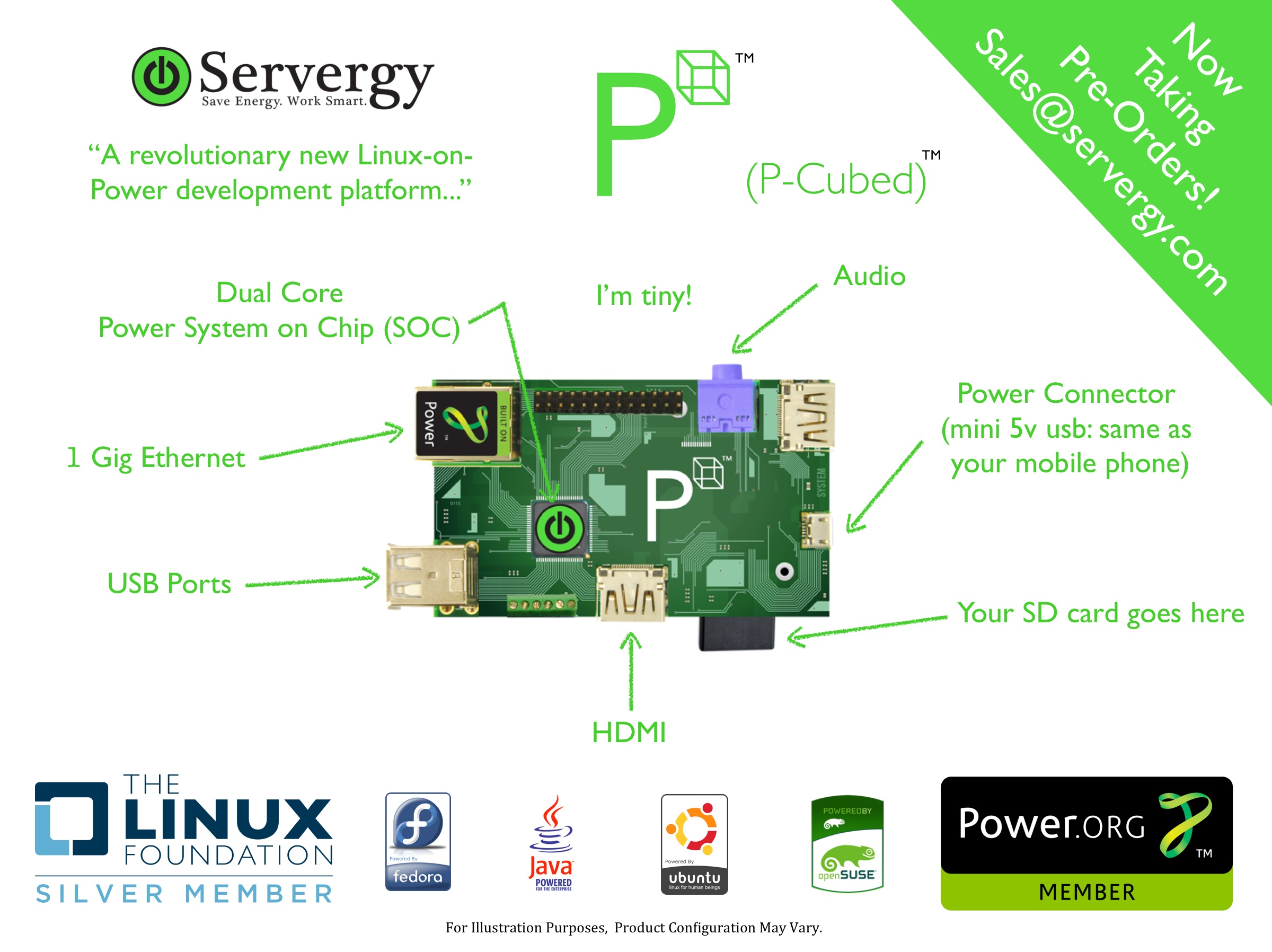 Servergy is announcing its newest product in the Servergy Power Linux Series line, an innovative Linux-on-Power development platform called “P-Cubed”. The computer is an all-in powerful development board catering primarily to enterprise Linux programmers, but for educators and serious hobbyists as well. Leveraging Power Architecture (TM) in an SoC that encompasses high-end hardware, with features including multi-core with hardware virtualization, the board delivers where other development platforms fall short.
Servergy is announcing its newest product in the Servergy Power Linux Series line, an innovative Linux-on-Power development platform called “P-Cubed”. The computer is an all-in powerful development board catering primarily to enterprise Linux programmers, but for educators and serious hobbyists as well. Leveraging Power Architecture (TM) in an SoC that encompasses high-end hardware, with features including multi-core with hardware virtualization, the board delivers where other development platforms fall short.Servergy will deliver support for a broad range of Linux and Java distributions. The company will be developing a developer portal that will be open soon on its website for taking pre-orders. The portal will also aim to be a one-stop area to get to all of the documentation, binaries and developer related materials for “P-Cubed” as well as general Power-on-Linux resources.
“As a proud member of the global Linux Foundation and
The P-Cubed computer uses the same proven Power Architecture (TM) developed by Apple, IBM and Motorola (now Freescale), which is used by everyone from the DOD to the NASA Mars Rover to the Sony, Nintendo and X-Box gaming stations. Enterprise Linux developers can now have that same power in their own hands for developing serious enterprise applications.
Beginning today, anyone interested can send an email to This e-mail address is being protected from spambots. You need JavaScript enabled to view it
requesti
requesti



